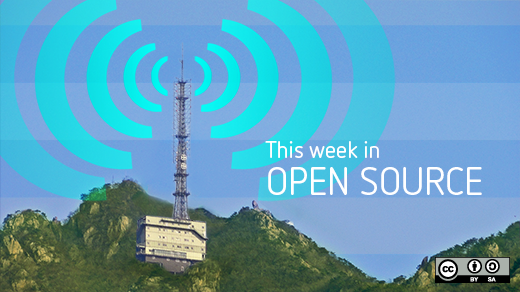In this week's edition of our open source news roundup, we take a look at LinkedIn and Facebook open sourcing tools, IBM giving Apache Spark a boost, and more!
Open source news for your reading pleasure.
June 12 - 19, 2015
LinkedIn open sources Pinot data analytics tool
It's always a pleasant surprise to learn about a large company that makes open source a central part of its business. It's an equally pleasant surprise when a company releases some of its tools as open source. LinkedIn falls into that category. Earlier this week, the company open sourced Pinto, its data analytics tool.
Pinot is a "real-time distributed analytics and datastore infrastructure aimed at low-latency data scaling." The tool powers over 30 of LinkedIn's internal tools which store and analyze billions of records daily.
If you want to get started using Pinot, you can grab the source code from GitHub.
Facebook's code verification goes open source
Facebook owes much of its success to open source. Whatever you think about the company, you have to admit that it does give back to the open source community. It did so recently by releasing Infer, a code verification tool, as open source.
Infer is "used to identify buggy mobile code before it ships" by automating the search for bugs in code. According to Infer's co-creator Peter O'Hearn it "looks at the program and makes guesses or hypotheses about the program, the way a human might." This allows developers to spend more time coding and less time hunting bugs.
You can find the code for Infer in Facebook's repository on GitHub.
Apache Spark project gets a major boost from IBM
It's not every day that an open source project gets a major contribution from a venerable IT firm. Earlier this week, the Apache Spark project received a major boost from IBM.
That boost? An investment of IBM's resources, including over 3,500 developers. One of those resources is IBM System ML, a powerful machine learning platform.
Spark, a cluster computing framework for processing big data, will definitely benefit from the investment. IBM will also benefit, too. According to TechWeek Europe "Spark is to be built into IBM’s analytics and commerce platforms and the company will offer Spark as a cloud service." One of the IBM services that will benefit from Spark is Watson Health Cloud which will "help medical researchers analyse population health data."
Linux Foundation launches Node.js Foundation
Over the last few years, Node.js has become one of the most widely-used development frameworks for web servers and network applications. But that didn't stop the project from running into troubles earlier this year—a project called io.js split from Node.js over conflicts with how the project was governed. To quell the dispute and bring both sides back together, the Linux Foundation created of the Node.js Foundation earlier this week.
According to a report in eWeek, "With the new foundation, the two communities are coming back together with support from multiple vendors." Jim Zemlin, the executive director of the Linux Foundation said that the new foundation will "operate with its own board of directors and community-elected technical steering committee with services and guidance provided by the Linux Foundation."
The new group has the support of a number of companies including IBM, PayPal, Joyent, SAP, and DigitalOcean. But, Zemlin points out, "no single company or community can outweigh the others." At the moment, Node.js and io.js are combining their code bases. The next release of Node.js will feature the almagamated code.
In other news
- Protecting your data from government requests
- Gluster founder launches open source startup
- Peeking inside the life of an open source developer
- Startup offer fully-supported Linux laptops
- Los Angeles County to shift to open source voting machines
A big thanks, as always, to the Opensource.com moderators and staff for their help this week.







1 Comment